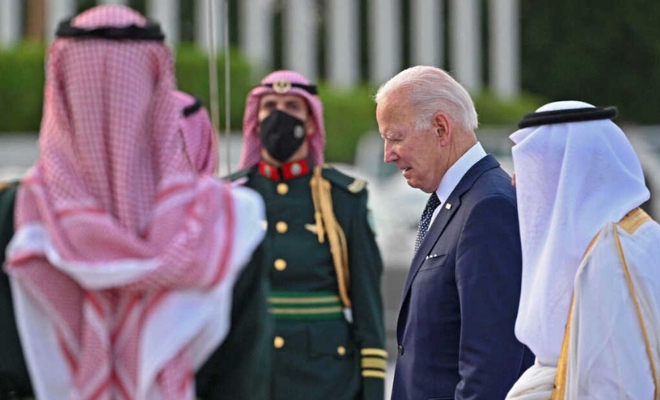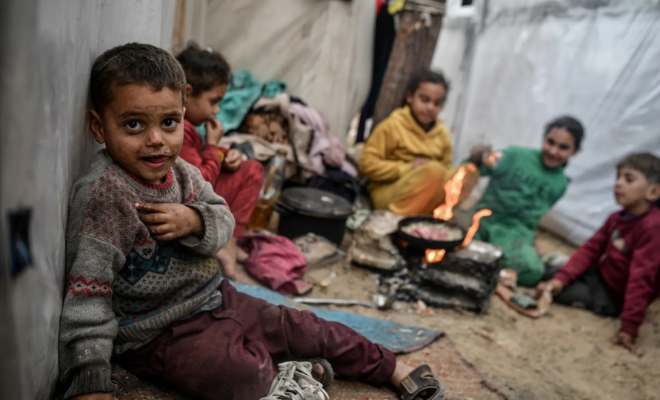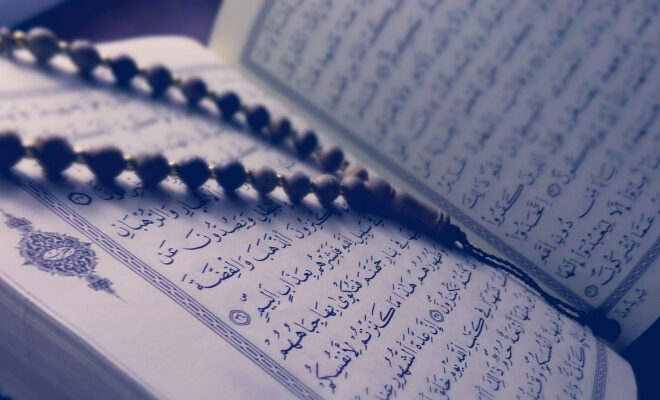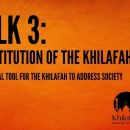Demcratic Elections: A Proven Way to Fail the Ummah
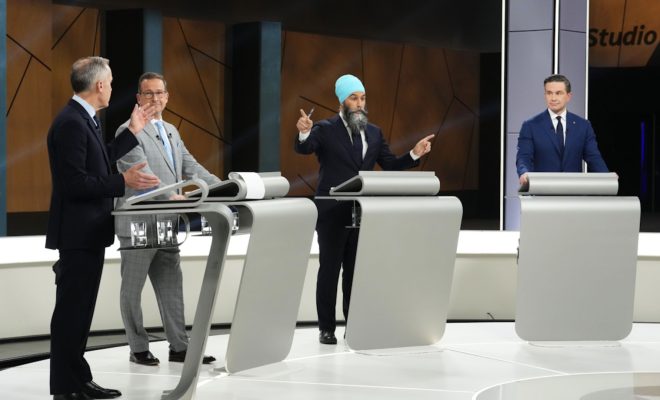
As Canada approaches the federal election on April 28th, political parties and candidates are once again ramping up visibility—flooding the media with promises, policies, and carefully packaged hope. Amidst a battered economy, rising housing and living costs, and threats of ongoing U.S. tariffs, voters are told change is just one vote away. Justin Trudeau’s resignation has only intensified the Canadian political theatre.
But for Muslims living in Canada, economic woes are not the only concern. The brutal genocide in Gaza rightfully remains at the center of our hearts and minds. We have watched in outrage as the Zionist entity continues its merciless slaughter of innocent men, women, and children—fully backed by the Canadian elites.
As election day nears each year, we find Muslim organizations and community leaders actively calling on us to vote—even going as far as arguing that political participation is a religious obligation, with the genocide in Gaza as the main rallying cry to galvanize the Muslim vote this election. But before casting a ballot, we must ask ourselves and our community some uncomfortable questions:
Can real change ever come from participating in a secular democratic system? What is the Islamic ruling on participating in the democratic electoral process?
Our Past in Perspective–Muslim Presence in Canada
Before delving into the various arguments for or against voting, we need to debunk the common narrative which paints Muslim immigration to Canada as a generous gift from the Canadian government—as if we have been granted a great favour that warrants endless gratitude and voting is one way of expressing this sentiment. But this framing erases the truth. Muslim migration to the West is not the result of privilege or simply goodwill. It is the product of historical survival—a response to the collapse of Islamic governance and the colonial restructuring of the Muslim world.
The fall of the Uthmani (Ottoman) Khilafah in the early 20th century in Turkey was the final nail in the coffin – opening up the ummah to foreign interference, puppet regimes, and borders redrawn to serve colonial interests. The same colonial powers that dismantled our political unity also imposed secular, authoritarian regimes across the Muslim lands—sparking decades of instability and oppression.
In that context, Muslims fled their lands, not out of loyalty to the West or some infatuation with their way of life, but because our lands were torn apart by forces beyond our control. From families escaping civil war and state collapse in the 1980s and 1990s from Lebanon, Somalia and Bosnia to economic migrants from Pakistan, Bangladesh and India—our presence in Canada is a consequence of colonial interference, the systematic stealing of our resources and the support for brutal dictators to prevent the rise of the ummah.
And yet, despite these hardships, the Muslim community in Canada has shown remarkable resilience in multiple spheres of life without compromising on our core principles. Furthermore, Canada benefits from our presence: the skills we contribute, the taxes we pay, and the high moral character we bring as observant Muslims (e.g. taking care of our parents, not indulging in intoxicants, etc.) Consequently, Muslims bring a high birth rate to a declining population and fill labour shortages; yet Islam and Muslims are constantly under attack. Most important of all, we owe our survival and security to Allah (swt) alone—who gave us the strength to endure and preserve our identity in spite of unimaginable obstacles set by the media and official authorities, with the intent to demonize Muslims to the wider population.
“Civic Duty” Paraded as Sacred Obligations
As Muslims, our reference point is always the Qur’an and Sunnah—not shifting public opinion, political pressure, or short-term interests. Our standard is halal and haram, not harm and benefit, nor taking actions based on fear. Yet today, we see a dangerous trend: the rebranding of secular concepts such as “civic duties”— i.e. voting—as a religious duty. Some go so far as to claim that participating in secular elections is an Islamic obligation (fard)!
Let us be crystal clear: voting in a man-made system of legislation is haram and is not an act of worship (ibaadah). It is a grave and unacceptable violation of the deen. Worse, it is often justified by misapplying and misinterpreting clear Islamic texts. Therefore, let us not confuse the concepts of “Civic Duty,” “Justice,” and “Human Rights” in a secular system with the sacred duties imposed by the Shari’ah of Allah (swt). To mix these ideas is not just misleading—it is a betrayal of Islamic principles.
Is Voting Halal or Permissible in Islam?
Canada’s political system is built on a liberal democracy. Its parliament creates, amends, and abolishes laws—without any reference to the Qur’an and Sunnah. Voting in such a system means choosing a person to legislate on your behalf, regardless of whether those laws conform to Islam or not. There is nothing in Islam that permits us to vote for or elect people to legislate laws on our behalf or in our name. In fact, Allah (swt) clearly forbids us from ever engaging in such activity. He (swt) says:
“Indeed legislation (ruling, judgment, command) is only for Allah; He has commanded that you shall not serve none but Him; this is the right Deen, but most people do not know.” [Qur’an 12:40]
“Or have they partners (to Allah) making lawful for them in the Deen, which Allah has not allowed?” [Qur’an 42:21]
The other aspect is the reality of Canadian politics. The legislators are not only infringing on Allah (swt)’s realm to create laws, but they are creating laws that attack our Islamic values and beliefs. These elected officials legislate laws that permit vices such as sexual deviancy, riba (interest), legalization of marijuana and alcohol, funnelling millions of dollars to the Zionist killing machine, and many other crimes. So, we have to ask ourselves, do we want to stand accountable on the Day of Judgment for helping to elect MPs legislating such laws?
The Qur’an and the Sunnah are clear in that we are not permitted to make laws or delegate other people (via democratic voting) to legislate on our behalf. We will not find a single case of Rasul’Allah (saw) ever engaging in this action. As a matter of fact, when Rasul’Allah (saw) was given the opportunity to participate in the non-Islamic system – e.g., Quraysh’s offer of kingship to the Prophet (saw) – he (saw) rejected the offer.
Indeed, obeying the commands of Islam prevents us from participating in the Canadian political system. However, as we can see from the life of Rasul’Allah (saw), non-participation is actually the correct path. Non-participation does not mean political self-isolation. In the Sunnah, there is actually an alternative and permissible path to achieving our political interests as Muslims in living in Canada.
The Alternative to Voting
Based on the Seerah of Rasul’Allah (saw) and the lives of Sahaba (ra), we are commanded to build an alternative roadmap. Specifically, we must view ourselves as guests in these lands. We must work for a permanent homeland. The only option shown to us in the Seerah of Rasul’Allah (saw) is restoring the Khilafah Rashidah back in the Muslim lands. Thus, no matter what we do and no matter how long we live in Canada, our vision must be set on re-establishing the system of Islam back in the Muslim lands.
Within that framework, we should work to solve our day-to-day problems in the West, and advocate for the rights enshrined by Islam. Besides our safety, we must also be concerned with the education of our children, our livelihoods, and so many other aspects as these obligations have been mandated by Islam irrespective of where we may live. We should adopt the mindset of solving problems without inviting the state authorities to dictate our affairs.
Instead, we should have a vision to be an independent and distinct community. The Sahaba (ra) did not involve themselves in the political affairs of Abyssinia. We should have a similar mindset. Canada is our temporary place of residence until Allah (swt) decides otherwise. Then, we shall migrate to the Khilafah lands once it is established in the Muslim lands. Until then, we should have a political mindset based on what Islam permits and requires of us.
We should discuss how Islam views and solves man’s problems. People in Canada experience real issues, so as a community, we have an opportunity to show that Islam provides a correct alternative to Capitalism, the corrupt ideology that has spread misery across the globe. In fact, we should show how the world requires the return of Islam as a political force. This will draw sincere individuals who are desperate for real solutions to society’s problems towards Islam and towards our Ummah.
Lastly, we should educate ourselves on the rights that Islam allows us to claim. Addressing our daily problems does not require us to vote; rather, it involves administration or bureaucracy that needs skill, resources and expertise, not political participation. These measures may make our lives easier, but we must set our hearts and minds on our own permanent home – the Khilafah State in the Muslim lands.
Victory is with Allah (swt) not at the Ballot Box
Voting in democratic elections will never bring justice for Gaza or the Ummah at large. The bombs will continue to drop, innocent blood will continue to be spilled, and Masjid Al-Aqsa as well as other Muslim lands will continue to cry out for help. No elections will protect our values or elevate the Ummah. Participation in this system is not only ineffective—it is Islamically not permissible. Voting will not liberate us. It will only delay the real work of revival by giving us false hopes. Let us be honest with ourselves: Did Human Rights, the U.N. or International Law protect our ummah? Did any Western nation take real military action to stop the atrocities from happening? Or did they all—Left, Right, Liberal, Conservative—fund the war, bless the bombs, and shake hands with the enemies of the ummah?
Let us rise above the illusion of the ballot box. Let us refuse to empower a system that contradicts the very core of our Islamic beliefs. And let us focus our energy on building real change—via working towards the re-establishment of the Khilafah. The Ummah can’t afford to place its hopes on another election. Or another MP. It needs liberation. It needs its system. It needs its shield. Rasul’Allah (saw) said:
“Indeed, the Khaleefah is a shield, from behind whom you fight and by whom you are protected.” [Muslim]

